From Dieselgate to EV Fumbles: Why Volkswagen’s Failure to Understand America Is Killing Its Future
Volkswagen’s been spinning its wheels in the U.S. for over a decade, missing sales targets, alienating dealers, and chasing woke marketing dreams instead of reality. From Dieselgate to EV disasters, it’s clear: VW doesn’t understand America, and their leadership is too clueless to figure it out. Want to save the brand? Hire smart people who know the market and stop pandering to agendas that don’t sell cars.
Ladies and gentlemen, it’s time to dissect the disaster that is Volkswagen in the United States. For over a decade, VW has been making the same mistakes, led by clueless executives, misguided marketing teams, and a complete failure to understand the American car buyer. The result? Missed sales targets, frustrated dealers, and a brand that continues to underperform in one of the world’s most important automotive markets.
Volkswagen once dreamed of selling 1 million vehicles annually in the U.S. by 2018. Let me tell you, folks, they didn’t even come close. They built a massive assembly plant in Chattanooga, Tennessee, to make it happen, promising cars “built for America.” But instead of listening to the needs of U.S. buyers and dealers, they filled leadership roles with people who had no understanding of the market. The result? A long history of poor decisions, from product launches to marketing strategies, and it’s only gotten worse.
Broken Promises and Failing Leadership
Let’s rewind to 2010, when Volkswagen boldly declared it would sell 1 million vehicles per year in the U.S. by 2018. They even built the Chattanooga plant to support this dream, producing models like the Passat and the Atlas. But here’s the kicker: by 2018, VW’s U.S. sales peaked at just 354,000 vehicles. Folks, that’s not just missing the target—that’s a total embarrassment.
Why the failure? Look no further than VW’s revolving door of CEOs and U.S. leadership teams. Time and time again, they’ve shipped in executives from Germany who have no clue how to connect with American buyers. This isn’t Europe, folks. Americans want practical, affordable, and reliable vehicles. Instead, VW spent years peddling cars with confusing names, uninspired designs, and price tags that didn’t match the value.
And the hits just keep coming. The recent ID.4 rollout, their big play in the electric vehicle (EV) market, has been nothing short of a disaster. Poor sales, production halts, and recalls for faulty electronic doors. VW promised to sell 100,000 ID.4s annually. Through October 2024? They managed just 11,857. That’s not even a rounding error compared to Tesla.
It’s not just the ID.4, folks. Look at the mess of Dieselgate—a scandal that cost VW billions and obliterated consumer trust. Then consider the cult cars people used to love: the Beetle, the Golf GTI, the Jetta. One by one, those models have either been discontinued or neutered into irrelevance. This is a brand that doesn’t know who it is anymore.
The Economy is Changing, and VW Isn’t Keeping Up
Here’s the real kicker: Volkswagen’s biggest market in the U.S. used to be young buyers. The Jetta, the Golf—these were cars that appealed to college students, first-time buyers, and young professionals. But today’s youth? They’re drowning in student loans, staring at skyrocketing car prices, and trying to survive in an economy that’s squeezing them at every turn.
Instead of adapting to these new realities, VW is doubling down on bad ideas. Do they offer affordable options to appeal to cash-strapped buyers? Nope. Do they create marketing campaigns that resonate with Gen Z? Not a chance. Instead, they’re busy pandering to woke agendas, prioritizing diversity hires over actual qualifications, and focusing on empty gestures instead of substance.
Young buyers aren’t looking for virtue signaling, folks—they’re looking for value. They need cars that won’t break the bank, that are reliable, and that feel like a smart purchase. VW’s leadership? Too busy sipping lattes in Washington, D.C., dreaming up DEI initiatives, and missing the mark on every front.
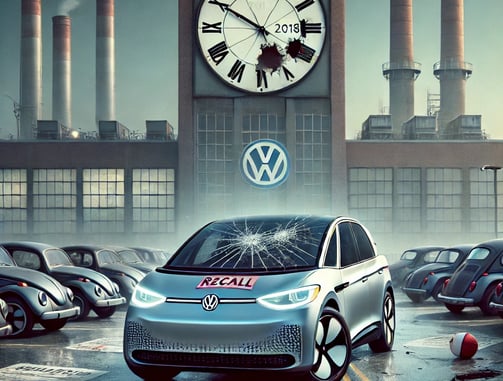

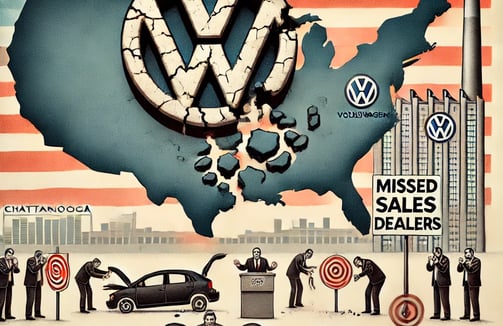

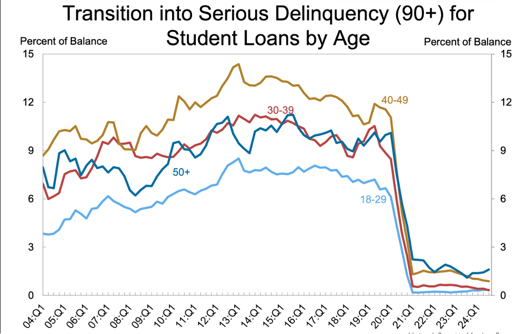

Dealers Left in the Dust
While VW’s executives play marketing games, it’s their dealer network that’s paying the price. Dealers are stuck moving excess inventory with huge discounts just to stay afloat. As of September, VW had to slap $4,000 in incentives on each car to move them off the lot. Compare their dealer throughput—298 cars per dealer per year—to Honda (985) or Subaru (769). That’s not just bad; it’s catastrophic.
And what does VW do? They blame the dealers. They promise growth targets that are so unrealistic it’s laughable. A 10% market share by 2030? That’s 1.5 million cars a year. Folks, if you believe that, I’ve got a bridge to sell you.
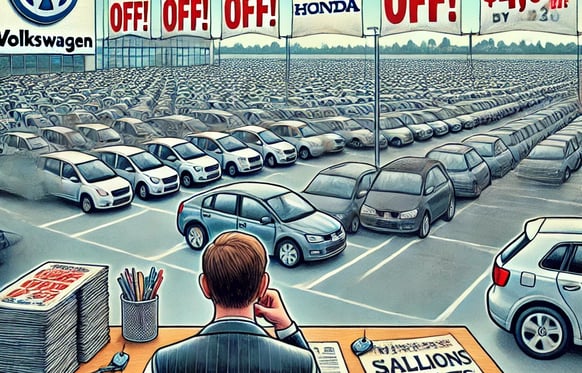

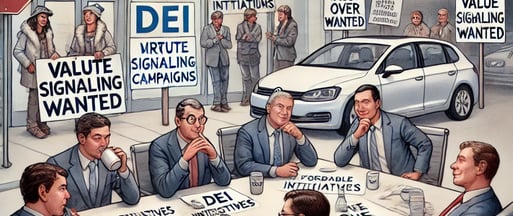

Time to Face Reality
The reality is this: Volkswagen’s U.S. strategy has been a failure for over a decade. They’ve missed sales goals, alienated dealers, and squandered opportunities in the EV market. And the reason is simple—they refuse to hire the right people.
Instead of bringing in leaders who understand the U.S. market, they ship in German executives who think they know better. Instead of hiring marketers with real automotive experience, they prioritize unqualified hires based on skin color, gender, or political agendas. Change is hard, folks, but it’s impossible when the people in charge are more focused on virtue signaling than building greatness.
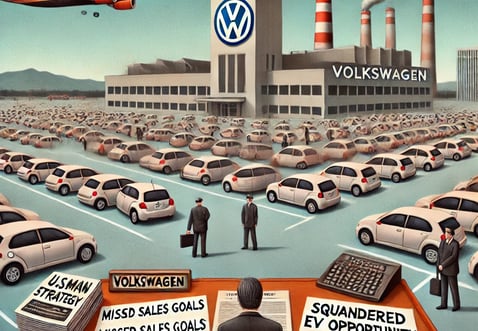

The Way Forward
If Volkswagen wants to survive in the U.S., it needs to stop the nonsense and start listening to the market. That means hiring smart, experienced people who understand what American buyers want. It means getting rid of the woke marketing campaigns and focusing on substance. It means bringing back the cult cars that people actually care about and delivering value in every segment.
This isn’t rocket science, folks. It’s about looking in the mirror and admitting that the current strategy isn’t working. The longer VW clings to its broken playbook, the more it will alienate the very buyers it needs to survive.
The American car market is tough, but success is possible. Just look at Subaru—a brand that knows exactly who it is and delivers cars that buyers love. VW has the resources and the potential to do the same, but only if it stops playing games and starts getting serious.
Until then, expect more missed targets, more frustrated dealers, and more disappointment. Because when you fail to understand your market, you fail—period.



